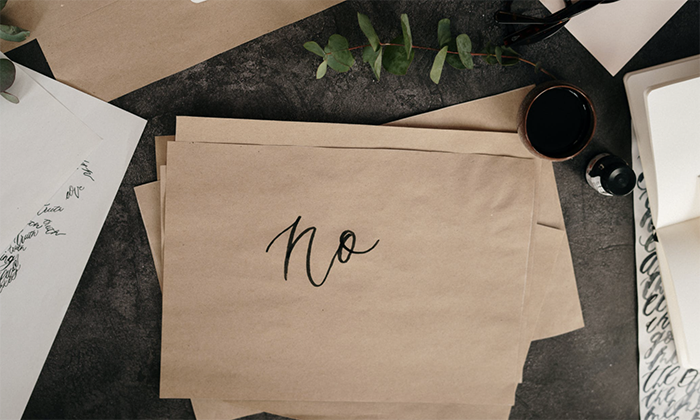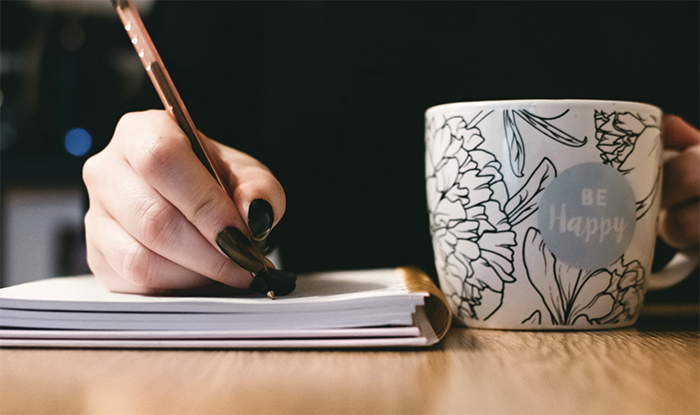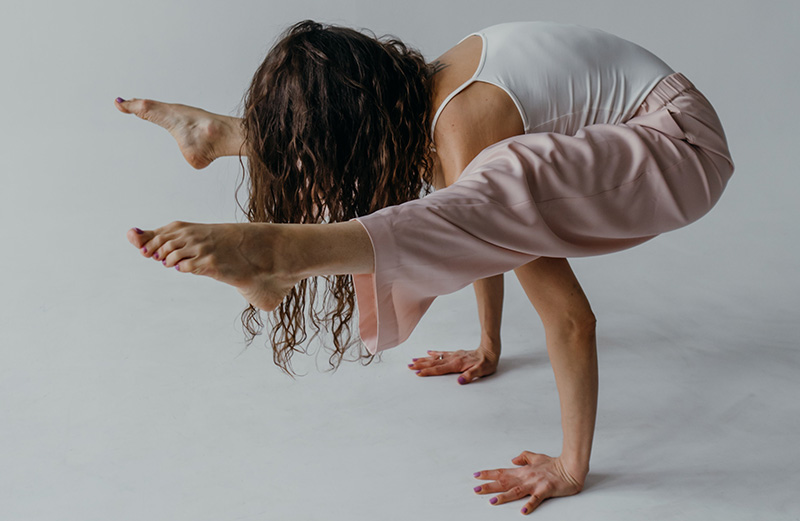Self discipline doesn’t come at once. It is a process and you need to make sure all three areas are covered: your body, your mind and soul. Everyone is trying to learn how to eat the right way and exercise, how to be less stressed at work, and at the same time have a positive mindset, and a healthy relationship with family, partner or friends. Well, when you put all this together it sounds like much work, but it doesn’t have to be that way.
And here are three steps to start this let’s call it “self healing process”. We usually avoid using this phrase but in order to explain this in a more picturesque way, we will need to use the widely exploited phrases.
Start Saying “No” More Often
How many times have you failed yourself and pleased others just because you didn’t want to seem rude. Doing it, or learning how to do it seems hard, but the first thing you need to take in consideration is your energy. You are investing your energy and time into something you are not even willing to do. If you are already stressed in your daily life or at your work, saying ‘Yes’ to a friend or a loved one may lead to a burnout, which could further lead to anxiety or in worst cases depression.
So, start slow and small. For example if you are working on your personal project and you are all hyped up and focused and you receive a text from a dear friend of yours asking you to grab a cup of coffee before they leave for the weekend, and you don’t really have time for that coffee, you are in your work mode, you are doing your best and making progress, but you need to see your friend because you won’t see them for the following 3 days, and you have a conflict in your mind and thinking whether it is going to be OK or not – say NO! (This sentence was deliberately made super long, to demonstrate the possible mind pattern a person can have when thinking about a similar situation).
In case you are having problems with saying ‘No’ there are some things that can help you do it faster. You have a choice, first of all – you don’t HAVE to do everything, you have your priorities. If you still have the urge to say ‘Yes’ try with stalling and saying you will think about it or set a time limit which gives you more flexibility.

Saying ‘No’ doesn’t mean that you have to sound rude. Instead, use an emphatic assertion, since assertiveness is about connection really. Let them know that you understand them but that you cannot be of help at the moment and don’t explain too much, because you give the other person room to give you a ‘solution’ to the situation and adjust your schedule and match theirs. And finally, don’t apologize.
Start Writing Things Down
Journaling is a famous and effective way to deal with your struggles, fears, ups and downs. Letting all of those thoughts out of your head and writing them down on a piece of paper is relieving and it just feels good. When we were younger we all had our diaries and many of us stopped writing things down when we’ve “grown old” because hey, it’s childish – but we’ve got news, get back on that horse again because the benefits of writing things down still apply, even at older age.
Writing down your own thoughts and fillings helps with understanding things more clearly, whether it’s stress or anxiety, or even depression, journaling is always a good idea. In this way if you have problems you can prioritize them, and this goes with fears and concerns as well. Tracking your symptoms day-to-day help you recognize what triggers you and you may even find a way how to control them. We are not only focused on the negative, but the positive as well. By providing an opportunity to have a positive one on one “conversation” with yourself you may channel your ups and help with identification of the negative thoughts and behavioural patterns.
Start slowly and keep that pen and paper visible at all times. Do it at least a few minutes a day and this will become your daily habit after some time. Don’t limit yourself on what topics you should focus on, just write down whatever comes to your mind.

According to a study done by Harvard University, participants who wrote things down/journaled had a 25% increase in performance comparing to he group who didn’t journal. John Dewey even said “We do not learn from experience…we learn from reflecting on experience.”
Breathe More
Don’t turn to your phone for comfort, since it gives you an illusion that it helps you relax, but it actually contributes to stress and worries. Instead, plan your self-care time and start with breathing. It sounds easy, but give it a shot. Start in the morning at least 10 minutes before you dig into your daily life.
No this is not just another ‘trend’ we need to catch to get in shape and all of our miseries will magically vanish. The right breathing techniques, or Breathwork has been active for more than five thousand years. Yogis have understood that conscious breathing and expanding the breath would be beneficial. You might have heard about prana or pranayama, which means the expansion of the life force and the expansion of breath. Conscious breathing is just the tip of the iceberg.
We do have an article about breathing techniques so we warmly advise that you take a look and test out those techniques.
The purpose of breathing and Breathwork is to control your inner body, the inner workings of the body. This varies from anxiety to heart rate. How many times have you caught yourself playing different scenarios in your head with a negative outcome and negative self-talk? Breathwork could even lead to developing a meditation practice, but don’t give up if you can’t do it ‘right’ in the beginning.

If on the other hand you haven’t found useful information in our blog, here is a short YouTube video about Breathwork at home. Remember, start slowly, find a quiet place where you will feel comfortable and set a timer for 5 minutes (make sure it is not a loud sound). Listen to your breathing and track how it feels for you and make notes so you can compare and track your progress.
There are other methods, and we know you may have heard about them. You probably even heard about these but this is a sign. You saw this article for a reason. It takes 21 days to build a habit. Start building yourself today.
Conclusion
So, to sum up, you need to start occasionally meditating with a tendency that meditating becomes a daily activity of yours. Try eating as healthy as possible. We are not saying that you need to switch to all healthy diet, no, just go easy on yourself. Start with drinking more water than usual, then drop in a fruit instead of a noon snack etc. And you even don’t have to do it every day, just have it somewhere in mind.
Start exercising, first slowly and then intensify. It will come naturally, don’t worry and make sure you get as much sleep as you need. Before sleep, try engaging in material
Speaking of healthy choices, an occasional glass of wine is not a deal breaker but you should stay away from drugs, alcohol and similar substances.
Where did you start? How is your journey towards self love going?

0 Comments
Leave A Comment